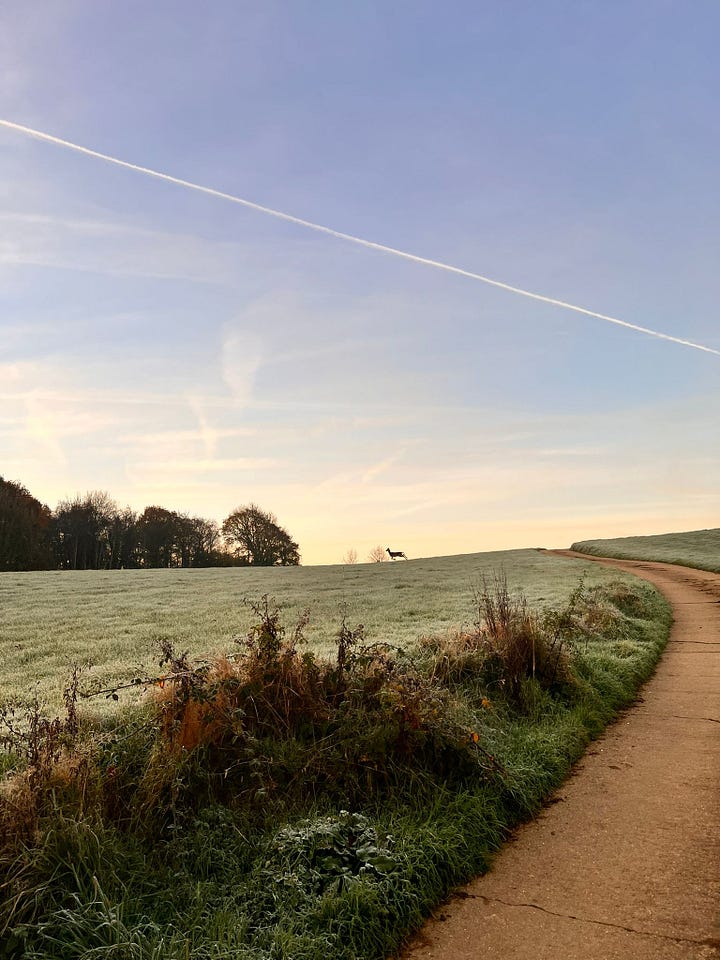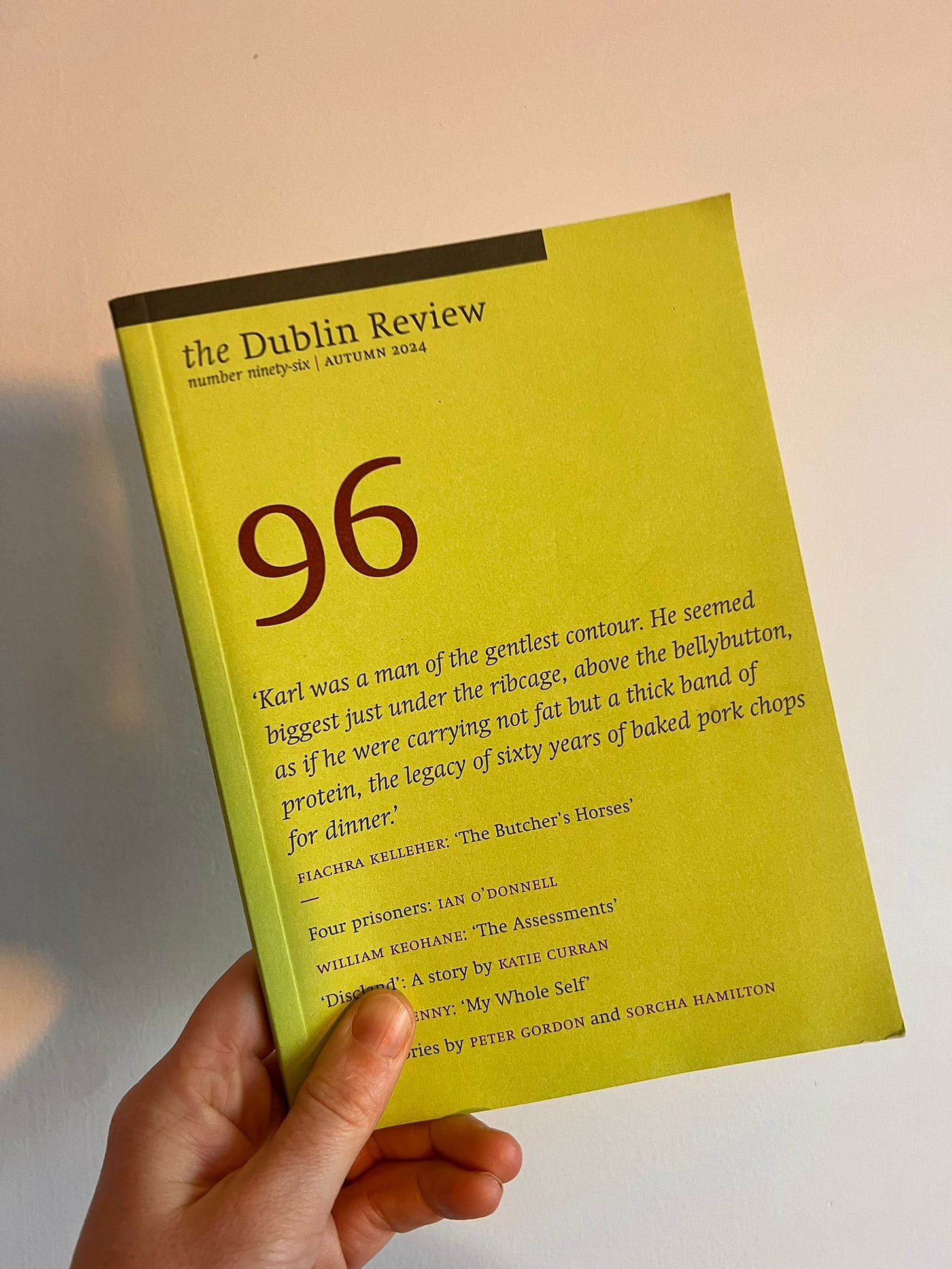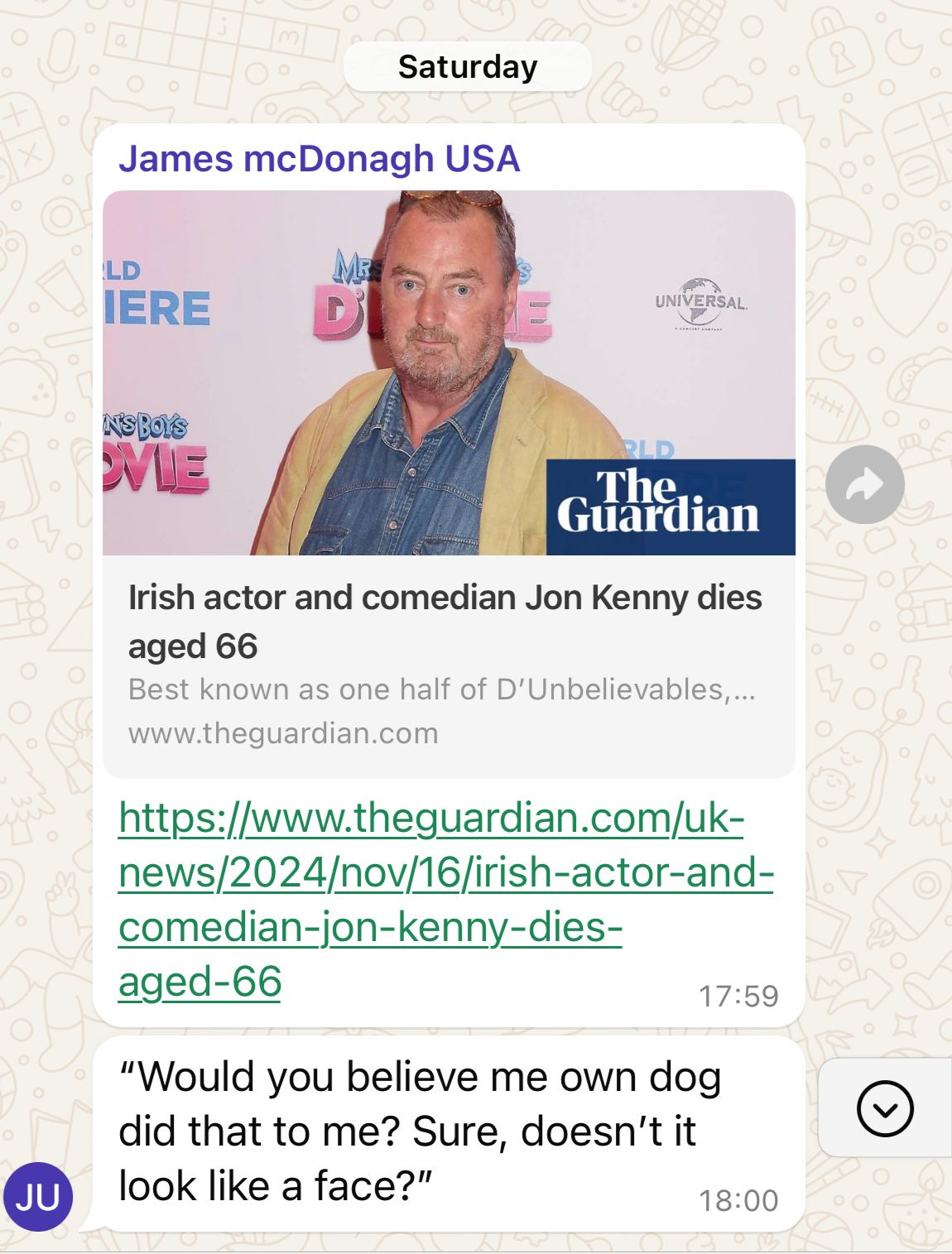If you enjoy reading this, please consider pressing the ❤ - it helps more people find my work. Thanks pets x
I had my first big rejection as a writer last week.
It was supposed to be idyllic. I was spending seven whole days at Totleigh Barton, an Arvon centre in rural Dervon, on a residential non-fiction writing course. There were lots of lovely skies and deer and the main building was thatched, for Christ’s sake.
The wifi/phone signal was intentionally limited “in order to preserve the unique tranquility of the retreat”, and so I initially vowed not to check my email at all. A couple of days in, though, I had a reality check compromised and relented to spiking my cortisol levels refreshing my inbox just once a day.




Thatch! Rustic table! Deer! Laura Ashley curtains!
On the Wednesday - the day after we’d heard from tutors
and Luke Turner about the eloquence of editor/publisher rejections (“Astonishing! Extraordinary! Sublime! Delicious! But I’m going to pass…”) - I received my very own batch of flowery thanks-but-no-thanks from the first round of major publishers Agent Anna had approached.Behold:
“I was very moved by the sample chapter; Laura writes about grief beautifully….”
“Laura is a lovely writer – I found myself so caught up in this…”
“A thoughtful meditation…love the themes covered…a subtle exploration of identity, class and the meaning of motherhood and family.”
But ultimately, nah; the nature of those ‘nahs’ based on the need for a “more defining hook”. Ugh, always this grubby obsession with the ‘hook’! How many perfectly good thoughtful memoirs have been ruined by shoehorning in some random topic in an attempt to add another circle to the Venn diagram of potential readership? “This book explores early motherhood, identity…and SKATEBOARDING.” “This is a memoir about male friendships, fear…and NIKE TRAINERS.”
To me, thoughts and feelings and everyday happenings recorded faithfully are everything. To publishers, though, they’re often simply not enough.
I do get it. Publishers need to make money, and everyone involved in conventional publishing needs to balance their artistic ambition against commercial viability. Plus, literary memoir - and, let’s get even more niche, Irish and Irish-adjacent memoir - is a notoriously challenging, unpredictable genre.
Which titles will cut through and become the next Notes to Self or Ghost in the Throat, and which will fade into obscurity? No one actually knows. You might as well get your crystal ball out.
This book - I Could Read The Sky, a dreamy fictional memoir about an Irishman nearing the end of his life in Kentish Town, London, and trying to make sense of the years of work and loss and dislocation - is a Holy Thing. It’s inspired me in ways I can’t properly articulate. Is it artistically ambitious? Absolutely. Was it a commercial success? I doubt it.
Weirdly, though, I feel OK about it. Ali and Luke being verrrrry honest about their own bumpy roads to publication definitely helped. Hey, if they had to significantly rework their hook/proposal/manuscript in order to publish their first (brilliant, extraordinary, sublime etc) books, maybe I can too.
I’m also grateful to them for sharing the statistical bonkersness of the publishing industry. Behold again: on average, editors commission around eight books a year. However, they receive on average 2-3 proposals a DAY from agents AND they directly commission some of their titles, i.e. approach authors directly and ask them to write a proposal. So, as a conservative estimate, they might approve 1% of the books they receive proposals for in a year. ONE percent.
Maths is very much not my forte, but even I know those odds are piddly.
Rather than feel demoralised by this depressing state of affairs, though, it’s made me realise that writers gotta have faith and tenacity and be their own indefatigable cheerleaders. It’s never going to be easy, or even clear what the next steps are.
As Claire Keegan - the other writing retreat I went on this year - asked us back in May, “Are you prepared to do the work that needs to be done? To be attentive to the things you need to be attentive to? Are you prepared to have no agenda?” (me, internally screaming: YES!)
And also, “No one finds their best after three drafts.” (me, internally shattered: this is painful but true!)
And finally, “The worst thing is not to try.”
I really feel that, you know? Writing might be hard, but not writing is harder.
Beat on, boats against the current, etc etc.
Thanks for reading x
Reading:
You know the chapter in The Artist’s Way about money and how you don’t actually need to spend much on yourself to feel like an absolute QUEEN (I’m paraphrasing, but)?
Well, I finally caved and subscribed to my favourite literary journal, The Dublin Review. Actual cost: 45 euro. The feeling of being a person who has a literary journal delivered direct to her door four times a year? Priceless
The Dublin Review - brilliant, extraordinary, sublime etc (no buts)
Substacking:
On the theme of rejection,
shared a list poem recently about notable rejections she’s experienced over the course of her life. Examples include “every cashier who won’t acknowledge me during the interaction”, “several astonishingly beautiful street cats” and “the clothing shop Morgan de Toi in 1997”.She read it recently at ‘Rejection is Romantic’, a literary salon on rejection organised by Vogue lass Emma Firth recently, which sounds like the best night ever. Read Amy’s full piece here. Here’s to de-stinging rejection by ushering it out into the light!
Snippet from the Family WhatsApp group:
Tom, psychotic village idiot from Dr Ted, dies.
I’m Laura McDonagh and I’m a second-generation Irish writer from the north-east of England.
My work explores memory, grief, social class, how place and identity intersect, being Irish in Britain, the 90s (💖) and more.
Subscribe to my Substack ‘Guess what? Me’ and I will love you forever IDEMT.xxx









Ouch - I feel your pain, Laura. But thank you for ending on the encouragement to just keep going. So often I want to give up... the repsonse of the publishing behemoth is not in any proportion, inverse or otherwise, to the quality of the writing.
It’s not a no but a not yet. Keep going! You’ve got this! X